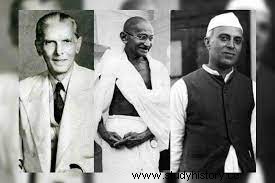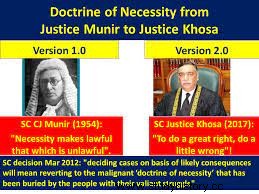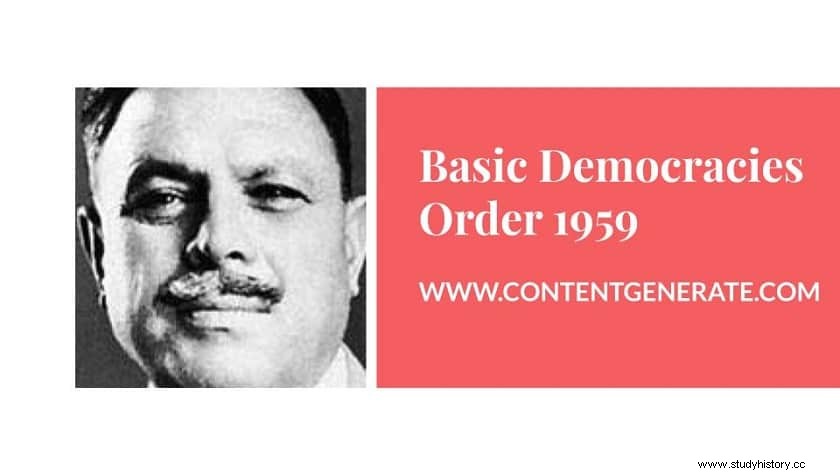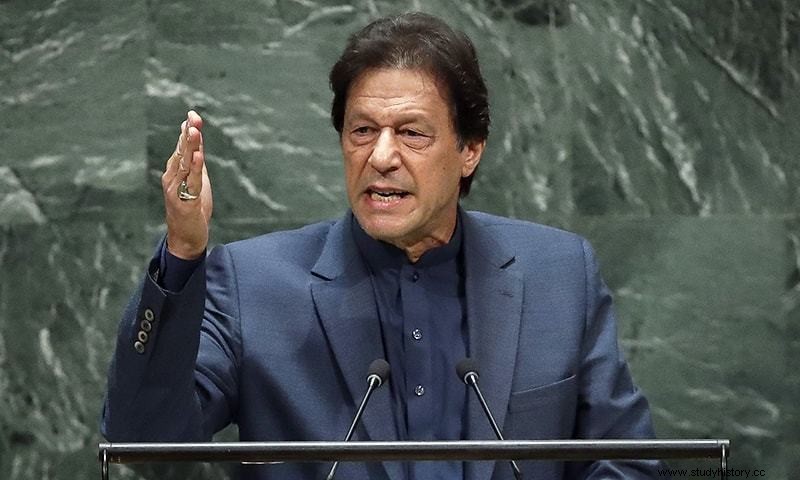
The British Raj divided the Indian subcontinent on August 14, 1947. They divided this vast landmass into Pakistan and India. However, Pakistan was a unique country in the sense that it had two wings. One was West Pakistan and the other was East Pakistan, but separated by a thousand kilometers wide country, India. Contrary to many people's beliefs, Pakistan was made for Muslims, but not in the name of Islam. The clergy made it a point to change the name of the country in the 1973 constitution to the Islamic Republic of Pakistan. The architect of the 1973 constitution, Zulfiqar Ali Bhutto, accepted this amendment to reassure the Conservatives. The Ahmadis were also declared non-Muslims in the 1973 constitution; a sad event. The sole purpose of this article is to highlight the deplorable history of Pakistan's political and constitutional affairs.
Since the scope of this article is after 1947, we are going to skip the part concerning the division of India.
Post 1947

MAJinnah gave a comprehensive speech to the Constituent Assembly on August 11, 1947. He made it clear that Pakistan should be a secular state and not a theocratic state. The essence of the speech is given below for reference:
You are free; you are free to go to your temples, you are free to go to your mosques or to another place of worship in the state of Pakistan. You may belong to any religion or caste or creed and have nothing to do with the activities of the state. Now I think we should have it in front of us as our ideal and you will discover that in time Hindus will stop being Hindus and Muslims will stop being Muslims, not in the religious sense because it is the personal belief of each individual but in the political sense as citizens.
Originally, the national flag of Pakistan was all green, but then Jinnah included white in 20% of the flag to represent the minorities living in Pakistan. Liaqat Ali Khan waved the national flag in the assembly on 11 August. Liaqat was declared the first Prime Minister of Pakistan
Failure to frame a constitution

Jinnah could not live long to lay the foundations of a modern state called Pakistan.
Liaqat Ali Khan was Pakistan's first prime minister and defense minister. He failed to draft a constitution when he was assassinated on October 16, 1951. On the other hand, India drafted a constitution as early as 1949 because of its mature leadership.
All Liaqat could do was to frame a goal resolution in 1949 that was the entrance to the constitution that has not yet been framed. Objectives Resolution was nothing more than a piece of paper with no fabric in it. The prominent feature of the target resolution was that the sovereignty of the state rests on Allah and not on the people. Unfortunately, Liaqat was assassinated in Liaqat Bagh in Rawalpindi. The perpetrators could not be apprehended. It's simply a mystery about who killed Liaqat.
Pakistan remained without a constitution until 1956. The 1956 constitution was of a federal nature. Some topics were on the federal list, some on the provincial list, and some on the contemporaneous list. These lists even existed in the Constitution of 1973. At present, all subjects in the contemporary list have been included in either the federal or the provincial list. The simultaneous list has been deleted. The political instability was such that Iskander Mirza, President of Pakistan, fired four prime ministers by 1955. Ironically, his own army chief, Ayub Khan, overthrew Mirza's government on October 8, 1958. The 1956 Constitution was the beginning of the Goal Solution. Unfortunately, Iskander Mirza declared his own military commander, Ayub Khan, the law of war and repealed the 1956 constitution. This happened on October 8, 1958.
Necessity

This was another blow to the checkered political and constitutional system in Pakistan. According to the constitution, Ayub should have been replaced by a new army chief in 1954. President Sikander Mirza dissolved the National Assembly in 1955. The National Assembly's speaker, Maulvi Tamizuddin, challenged the decision in the Supreme Court, but the infamous judge Munir upheld the decision and cited The Doctrine of Necessity. the decision.
This doctrine of necessity destroyed the legal substance of the country. This doctrine was used many times to justify the laws of battle that are not yet to come. Due to the fragility of the political system, however, Ayub did not relinquish power and drafted a new constitution in 1962. This was a presidential form of the constitution with a single legislator. Contrary to all parliamentary norms, he declared West Pakistan as one entity. He did this to undermine the numerical superiority of the Bengalis. The underlying current of this movement was the supposed racial inferiority of Bengalis.
Basic democracies
In accordance with the Constitution of 1962, elections were held in 1962. The Electoral College was the trade union council. They were 80,000 XNUMX in strength. Ayub's competitor was Jinnah's only sister, Fatima Jinnah. Nevertheless, Ayub rigged the election and won the polls.

Zulfiqar Ali Bhutto, a foreign-educated diplomat, became the youngest foreign minister at the age of 30. He was close to Ayub Khan. When differences arose between Bhutto and Ayub, the former started an agitation against Ayub. According to the 1962 constitution, Ayub should have handed over power to the Senate leader before resigning as the country's chief executive. However, he exceeded his own convictions, handing over power to General Yahya, his military commander. This was another mistake made in the political and legal system of the country.
The 1970 elections were the only free and fair (adult-franchised) elections in Pakistan's political system. Zulfiqar Ali Bhutto's Pakistan People's Party swept the polls in western Pakistan while Mujib ur Rehman's Awami League did so in eastern Pakistan. As the population of East Pakistan grew, Mujib ur Rehman should have been made Prime Minister of the United Pakistan.
Zulfiqar Ali Bhutto failed to digest this reality. The same was the case with Yahya Khan, who could not let the Bengali inferior race rule the country. Yahya ordered a military operation in eastern Pakistan. For reference, you can access the six points at:https://en.wikipedia.org/wiki/Six_point_movement
Mujib's six points were federal rather than federal. To put it simply, Mujib wanted a de facto own country. After the war with India in 1971, Bhutto became the civilian chief of the law of war, as there was no constitution at that time. In 1973, Bhutto got a feather in his cap. He came up with the Constitution of 1973, consisting of a two-chamber legislature. All but one member of parliament signed the constitution unanimously. The National Assembly or lower house consisted of 272 directly elected seats, 60 were reserved seats for women and a further 10 for minorities. The Senate or House of Lords consists of equal seats for the federal units to maintain justice between the provinces.
Bhutto's role
Zulfiqar Ali Bhutto was a true democrat in letter and spirit. As the 1970 elections were the most transparent elections in Pakistan's political and constitutional history, Bhutto had a mandate to do what was best for the country.
For example, Pakistan's arch-rival India tested its nuclear weapon in 1974 at the site of Pokhran. Bhutto realized that this step taken by India had upset the balance of power in the subcontinent. From then on, Bhutto embarked on the mission of nuclear Pakistanis along with strengthening the Sino-Pak relationship. Secretary of State Henry Kissinger (a close friend of Bhutto) warned that we (the United States) would make a horrible out of you (Pakistan). Then came Bhutto's response that we would eat grass, but we would make an atomic bomb.
Bhutto was a great Democrat, but he was very careful about choosing his subordinates. He elected a humble chief of staff, General Zia ul Haq, so that he could contain the military establishment. As the nuclear program developed, Bhutto began to form a Muslim bloc. For the United States, Bhutto was getting too big for his shoes.
At the request of the US establishment, Zia imposed war laws on the country on July 5, 1977. He imprisoned Bhutto and promised that no drastic measures would be taken against him. Zia promised to hold parliamentary elections in 90 days. However, the 90 days of 11 years culminated in Zia's death sponsored again by the US Central International Agency and Mossad. At the expense of repeating herself, Zia also became too big for her shoes.
Zia was a religious bigot. He continued with the nuclear program that tricked the United States. In 1988, a conspiracy was hatched against Zia by Mossad and the CIA, and he too was killed in a plane crash.
When he got to the main topic, Zia repealed the 1973 constitution and declared martial law in 1977. Zia broke the promise and hanged Bhutto on July 4, 1979. He held elections on a non-party basis in 1985, just an eye wash to legitimize his eleven-year rule. However, Zia made an unpleasant change to the constitution, Article 58 2 (b) which allowed the president to dissolve the national and provincial assemblies after his whim. He used the article to dissolve the congregation in Mohd. Ali Khan Junejo in 1985. The use of this article made the President of the Chief of the Army Staff (COAS) almighty.
Zia's arch-rival was now Benazir Bhutto, daughter of Zulfiqar Ali Bhutto (founder of the Pakistan Peoples Party). Benazir went into exile and returned to Pakistan in April 1986. Zia set the election date for November 1988. The director general of Inter Services Intelligence (ISI), Gen Hameed Gul, was tasked with forming Islami Jamhoori Ittihad (IJI) to oppose the Pakistan Peoples Party (PPP). The Muhajir Qaumi Movement (MQM) was protected by Zia in Sindh to counter PPP as the PPP stronghold was in Sindh. The popular Zulfiqar Ali Bhutto was a sindhi. His party, however, had a federal appeal. The leader of the MQM was Altaf Hussain, who has now been declared a traitor. Interestingly, Zia put the election dates close to Benazir's biological pregnancy dates.
Benazir was elected prime minister in November 1988 despite opposition from the president (who could dissolve the assemblies at any time), Ghulam Ishaq Khan and the military establishment. This government was rather sadly sent packing on August 6, 1990, accused of corruption and nepotism.
Then came the decade of the 1990s, which is a stain on Pakistan's political history. The whole decade was full of unrest as Benazir's PPP and Nawaz Sharif's Pakistan Muslim League (PML) continued to play musical chairs. All principles of democracy were ignored. Nawaz Sharif was a prodigy of late Zia ul Haq and a stick of the military establishment. The whole decade was lost due to internal struggle. No government was allowed to complete its entire term, and all these incidents left the constitution to the dogs.
The dirtiest role played in this power game was played by the military establishment. Instead of playing the role of a professional in defending borders, it began to interfere in national politics. During Benazir Bhutto's premiere, no army general wore a hat as they did not want to greet a female leader.
Benazir's husband, Asif Ali Zardari from Nawabshah, Sindh, was a corrupt politician. He was known for receiving setbacks in every development program. He was derogatoryly named as Mr. 10 percent. However, he did a good thing for the country. When he became president, he sold his power of 58 2 (b). Now the role of the president is only the head of state, who can only issue 4-month valid regulations.
Imran Khan Niazi picked up the threads where we left, and formed his party, Pakistan Tehreek-e-Insaf (PTI). Initially, he won only one seat for himself. But as Imran Khan is an honest politician, he has managed to rise to the post of Prime Minister of Pakistan. He has been able to form provincial governments in Punjab, Khyber-Pakhtunkhwa and Balochistan.
Sindh is the only party where the PPP has managed to form a government. Following the assassination of Benazir Bhutto, Bilawal Bhutto Zardari is the party's chairman, and Asif Ali Zardari is the co - chairman.
the conclusion

The sections above show past and present political and constitutional history of Pakistan. Having said that and done, we must not forget that 74 years in the history of nations is nothing. We must not compare our democracy with Western democracies, as it has taken centuries to develop as a nation. We must not forget the First and Second World Wars. The Holocaust is an example of many. To conclude, Pakistan still has a long way to go and has an optimistic view, it will sail through the problems and become a great nation in the face of this world.
Featured Image Credit:https://www.trtworld.com/
